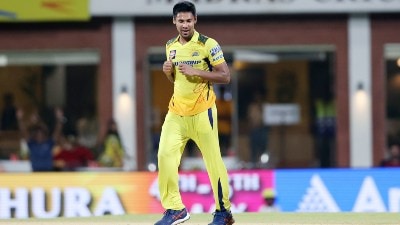Stay updated with the latest - Click here to follow us on Instagram
DJBs future plan: wastewater for cleaning,construction
The Delhi Jal Board has a plan up its sleeves to deter people from wasting potable water and at the same time earn revenue for itself.
5-MGD waste treatment plant to come up in Okhla; at present,almost 80% of the supply water turns into sewage and is treated,the rest goes down the drain,literally
The Delhi Jal Board has a plan up its sleeves to deter people from wasting potable water and at the same time earn revenue for itself. It will soon start selling non-potable water to government agencies for washing,horticulture and construction purposes.
We will supply water through a pipeline to the Delhi Transport Corporation to wash buses and send tankers to construction agencies. We also plan to send tankers to the Municipal Corporation of Delhi to wash toilets,which are usually in a bad condition, said DJB chief executive officer Ramesh Negi. Other agencies on the DJBs consumer list are CPWD,PWD,and the Delhi Metro,among others.
But where will the water come from? The answer is a new wastewater treatment plant,to be constructed next to the 140- million gallons per day (MGD) sewage treatment plant in Okhla.
The Delhi government has given a go-ahead to the 5-MGD plant that will give secondary and tertiary treatment to sewage after its primary cleaning.
Water from the plant is also expected to meet the increased demand during the Commonwealth Games.
The Okhla tertiary treatment plant will be a pilot project for the next two years, said Negi.
According to studies,almost 80 per cent of the supplied water turns into wastewater or sewage. At present,the DJB collects sewage through drainage pipelines at the sewage treatment plants where it receives primary treatment.
The rest is wasted.
Delhi has at least 1,600 unauthorised colonies that dont get piped water supply. And in the absence of proper sewerage facilities,the sewage often makes its way to the Yamuna,polluting the groundwater table.
The attempt is to not only recycle wastewater for non-potable use,but also check pollution levels in the Yamuna, said Negi.
The DJB has plans for secondary and tertiary treatment of wastewater at its water treatment plants (WTP) too.
Last month,the DJB commissioned its first wastewater recycling plant in Haiderpur,constructed at a cost of Rs 26.59 crore. With an average production capacity of 200 MGD,the Haiderpur WTP now produces 16 MGD of additional water,which was earlier lost during treatment.
Officials said the agency was now in the process of starting three more wastewater recycling plants next month a 10-MGD plant at Bhagirathi,an 11-MGD plant at Wazirabad and an 8-MGD plant at Chandrawal.
Keeping in mind the need to conserve water and have additional sources to generate drinking water,besides the summer requirements,the DJB initiative is likely to add at least 45 MGD of filtered water by recycling wastewater, said a senior DJB official.







